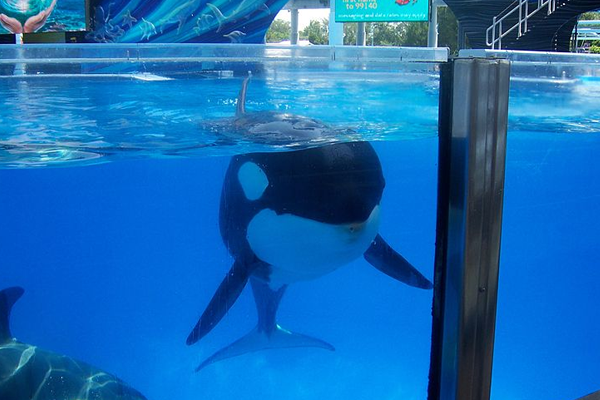[quote]By Kiera Donovan
Online Writer
Photo by Gordon2448 (Wikipedia Contributor)[/quote]
Possible new law threatens to release captive Orcas in California.
In March 2014, California state legislator Richard Bloom proposed a ban of orca whale captivity and breeding. The law would force Seaworld to release the orca, or killer, whales it already has in captivity.
With the recent documentary “BlackFish,” society’s recognition for animal cruelty has expanded beyond domestic pets, zoos, and captivities. This law will prevent further captivation of orca’s in California for entertainment or research.
“It’s really sad to see the way whales are treated,” junior Holly Reidy said. “I wish people would consider [this] more when they go to zoos.”
The tanks at Seaworld in California are 36 feet deep, 186 feet long, and 90 feet wide. For comparison, an NFL football field is 360 feet long and 160 feet wide. The average killer whale is 22 feet long, and there are typically at least two whales per tank. The tanks have little to no shade, so many whales suffer from sunburn that trainers pour black zinc oxide across their backs to keep the public from noticing burns or blisters on the whales’ backs. There are 23 killer whales in captivity at the three U.S. Seaworld amusement parks.
Trainers and researchers for Seaworld have not turned a blind eye to this law and the media attention that came with it. In an interview with CNN, former trainer for Seaworld Grey Stafford said that having the orcas in captivity is the best way to learn how to protect them and provide for them. Killer whales in the wild are approaching becoming an endangered species due to poaching and pollution. Grey Stafford also suggests that captivity of whales is the only way to keep the public educated about them. If the public can see endangered animals like whales in zoos or aquariums, then they will make connections with these animals and be more likely to contribute to the conservation of them. However, the board of Seaworld has banned the breeding of orca whales until further notice. Stafford suggest that the captivity of whales is for their well being, however, they still require the whales to participate in long difficult shows, like “The Amazing Shamu Show” for the public’s entertainment.
[polldaddy poll=9138641]
According to us.whales.org, 161 orcas have died in captivity. Whales in captivity are fed frozen fish and forced medicines to replace the nutrients they lose by not being in the ocean. Basic living needs staying hydrated become difficult in captivity, to counteract the lack of hydration orca’s are force fed gelatin cubes by their trainers. Their life expectancy goes from an average of 70 to an average of 13 once in captivity. Some orcas have even died from unexpected diseases that were transferred through organisms they do not have contact with in the wild, such as mosquitoes. A few orcas have even taken their own lives. Hugo, an orca that once lived at Seaquarium in Miami, was reported to have died from repeatedly smashing his head against the tank until he was dead.
The positives and negatives of whale captivity will further be assessed throughout the year, but the law itself will not be brought to congress again until 2016.







